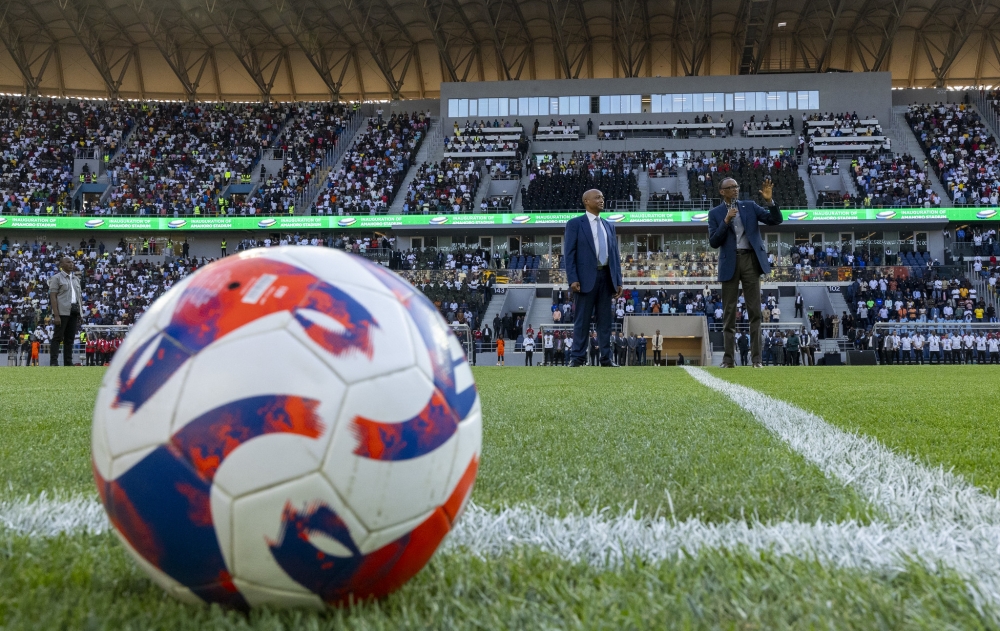

I sadly wasn’t able to join the over 40,000 Rwandans who packed the fabulous Amahoro Stadium to witness its official opening because I traveled upcountry on Monday.
Although I did go for the stadium’s first-ever game a few weeks back, watching the official opening on YouTube, I could feel the electricity in the facility all the way in rural Ngoma District where I was.
The roar when the stadium announcer informed the multitude present that President Paul Kagame had arrived made the hairs on my arms stand up, literally.
As I watched President Kagame and CAF President, Patrice Motsepe, address the crowd and then take their seats, I thought to myself, "Look at how far we have come. Who would have ever thought?”
If you’ve been a Gmail user as long as I have (30,000 emails and counting), every so often Google will inform you that you are about to use up your free 15GB of space and then give you a choice to either buy more GBs or delete some of your heavier files.
Well, I received that email on Sunday and instead of buying more data, I decided to delete unnecessary files. As I deleted email by email, I went further and further back. Until I reached 2011. I was about to delete an email with a large attachment until I saw what it was: a report written by CSIS (Center for Strategic and International Studies) about Rwanda.
Titled ‘Rwanda. Assessing Risks to Stability’ and written by Jennifer G. Cooke, the 30-page document made some strong assertions.
While noting Rwanda’s economic growth, clean streets, and overall good governance, Jennifer G. Cooke added a caveat. "The country’s apparent stability masks deep-rooted tensions, unresolved resentments, and an authoritarian government that is unwilling to countenance criticism or open political debate,” she wrote.
In the document, Jennifer G. Cooke, who today happens to be the Director of the Institute for African Studies at The George Washington University, Elliott School of International Affairs, played all the ‘greatest hits’.
She noted our lack of substantial natural resources, our subsistence agriculture, the 1994 Genocide against the Tutsi, and the effect that it had on our social fabric. She also noted the threats posed by the FDLR and the instability that reigned in eastern DR Congo.
She remarked on Rwanda’s dependence on aid (according to her, 50% of Rwanda’s national budget at the time was supported by donors) and, citing a UN report from 2007, wrote that Rwanda risked exhausting "its ability to reduce poverty rates through economic growth alone” because of "rising inequality.”
She wrote that the nature of the RPF government was "brittle” and, calling Rwanda’s economic base "tiny,” worried that external shocks would waylay the country’s development agenda, ensuring an economic crisis that would quickly become a political one.
Going through the document and recalling the strong emotions I first felt reading it 13 years ago, and then watching the Amahoro Stadium festivities, all I could feel was a sense of deep appreciation for just how well President Paul Kagame, the RPF, its coalition partners, and the entire government had navigated the risks that Jennifer G. Cooke worried so much about in 2011.
In terms of risks, I’m pretty sure that even she didn’t think that Rwanda would survive the global shocks we’ve seen over the last five years.
She couldn’t have imagined that Rwanda would survive COVID-19, the Russia-Ukraine War, the Donald Trump presidency, Brexit, the Gaza war, and the Houthi rebels’ Red Sea blockade. She couldn’t have imagined that the RPF would become stronger and more popular over time. She couldn’t have imagined that a generation of young people would think of themselves as Rwandan citizens, first and foremost.
She couldn’t have imagined just how resilient Rwandans would become. Just how proud. I’m not faulting her. Not one bit. She simply couldn’t think beyond what she saw on the ground.
Thankfully, our leadership didn’t think in the manner she did. They saw our ‘weaknesses’ and went to work: building, consolidating, securing, and investing.
And as we get closer and closer to the July 15 presidential and parliamentary election, we shall reward the president and the political party who made today’s Rwanda possible. We shall enthusiastically vote for President Paul Kagame and RPF-Inkotanyi.
The author is a socio-political commentator


